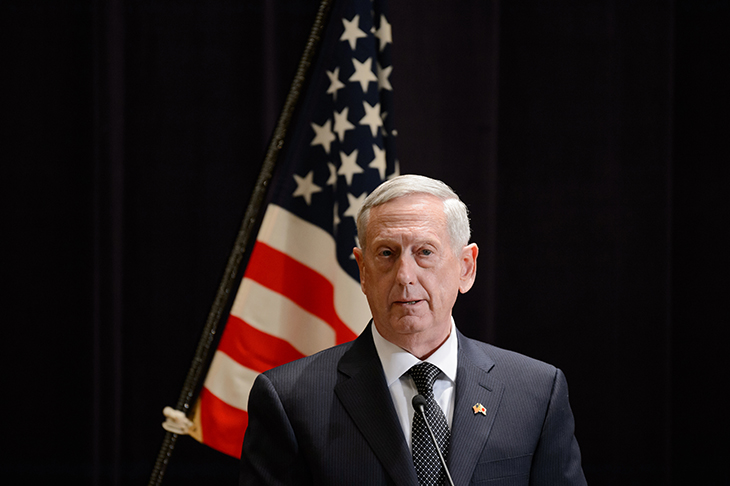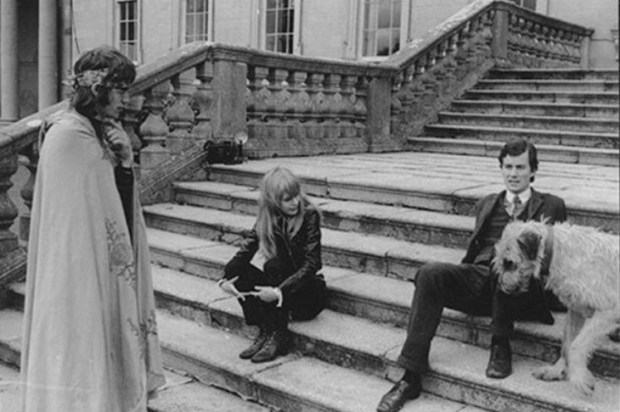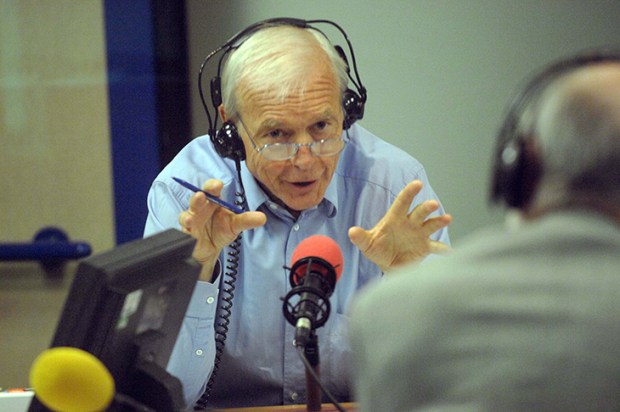General Jim Mattis ended his remarkable career as a four-star US marine general, and finally as US secretary of defense. His book Call Sign Chaos is co-authored with Bing West, also an ex-marine and one-time assistant secretary of defense. It is partly an autobiography and partly a treatise on leadership.
The autobiography relates his career from second lieutenant to general by way of three wars: the liberation of Kuwait in 1991 after Saddam Hussein’s invasion of that neighbouring country; the removal of the Taleban from Afghanistan in 2001 following 9/11; and the invasion of Iraq in 2003. Finally come his days — a total of 712 — as defense secretary, from January 2017 to December 2018.
Throughout this account Mattis develops his philosophy of leadership. It is one of deep comradeship with his marines, of sharing exhilaration and hardship with them, of allowing — indeed, encouraging — subordinate commanders to use their initiative, and of always learning, not least through extensive reading.
Mattis is determined to understand counter-insurgency, and how it must be distinguished from conventional war fighting. He believes — rightly, in my view — that counter-insurgency’s battlefield is not terrain per se but rather people’s minds and attitudes. In such circumstances, empathy can be a powerful weapon. He is also very aware that military force can result in adverse political reaction among civilians, thereby putting a premium on careful and considered judgment.
His attention to detail, his total immersion in his profession and his dedication to duty are impressive. As a single man he did not have the distractions of family, but neither did he have the rewards. Perhaps this, combined with his religious faith, earned him the nickname ‘Warrior Monk’. The origin of his other nickname — ‘Mad Dog’ — is less clear, but I imagine it derives from his uncompromising attitude to military action and willingness to accept risk.
The autobiographical dimension is a stimulating read, but I was more engaged by Mattis’s thoughts on strategy and how it is devised — or not — in the political/military domain. Here one detects frustration with the Washington machine. Campaign planning requires the government to define its objectives; it should answer the general’s question: ‘What do you want me to do?’ It is then for the military to decide on the way in which to apply its means. The means may well also include non-military dimensions, such as civil governance or humanitarian aid. The problem is the inability or unwillingness of politicians to define the end-state.
George W. Bush declared that the ‘goal in Afghanistan is to… establish a stable, moderate and democratic state’. Such a vaulting ambition is difficult to translate into military ways and means. Mattis’s frustration appears to have been carried over to his time as defense secretary. Regarding allies, for example, he firmly states his belief that ‘Nato is absolutely necessary for geo-political and cultural solidarity among western democracies’; yet President Trump seems unconvinced of this position. It is, perhaps, a sign of Mattis’s struggle between his duty as defense secretary and his difference of opinion with the president that his final appointment is given rather scant coverage. This is a pity, because his reflections from his time in office would add more weight to his conclusions. Mattis resigned from the office of defense secretary late last year, as his letter to the president makes clear. Trump, on the other hand, would have us believe that he sacked Mattis — differing accounts which say much about their uneasy relationship.
Without doubt, this a book for military readers, particularly senior officers; beyond that, it is also for anyone involved or interested in the formulation of strategy and the application of military force.
Got something to add? Join the discussion and comment below.
Get 10 issues for just $10
Subscribe to The Spectator Australia today for the next 10 magazine issues, plus full online access, for just $10.
You might disagree with half of it, but you’ll enjoy reading all of it. Try your first month for free, then just $2 a week for the remainder of your first year.














Comments
Don't miss out
Join the conversation with other Spectator Australia readers. Subscribe to leave a comment.
SUBSCRIBEAlready a subscriber? Log in